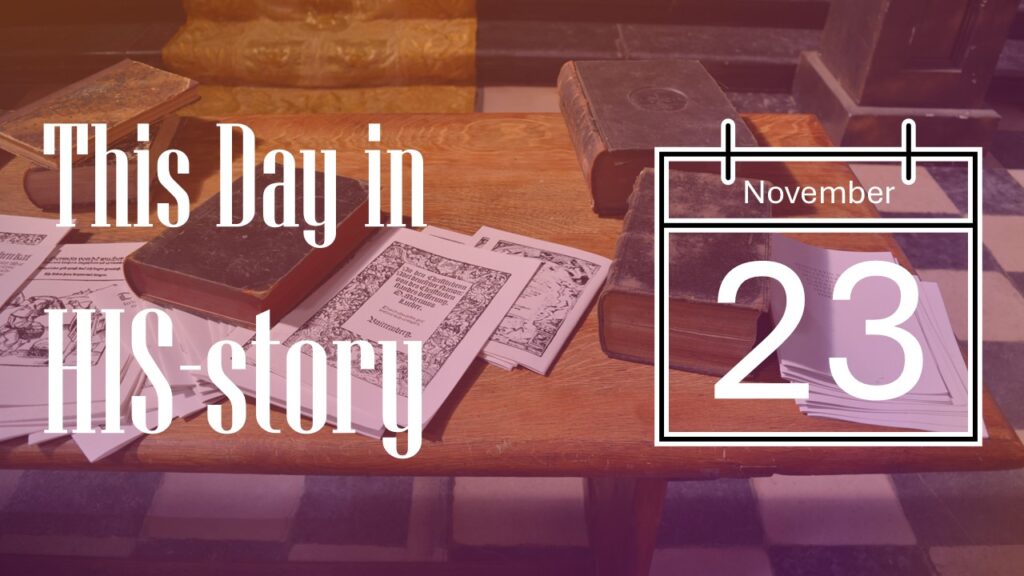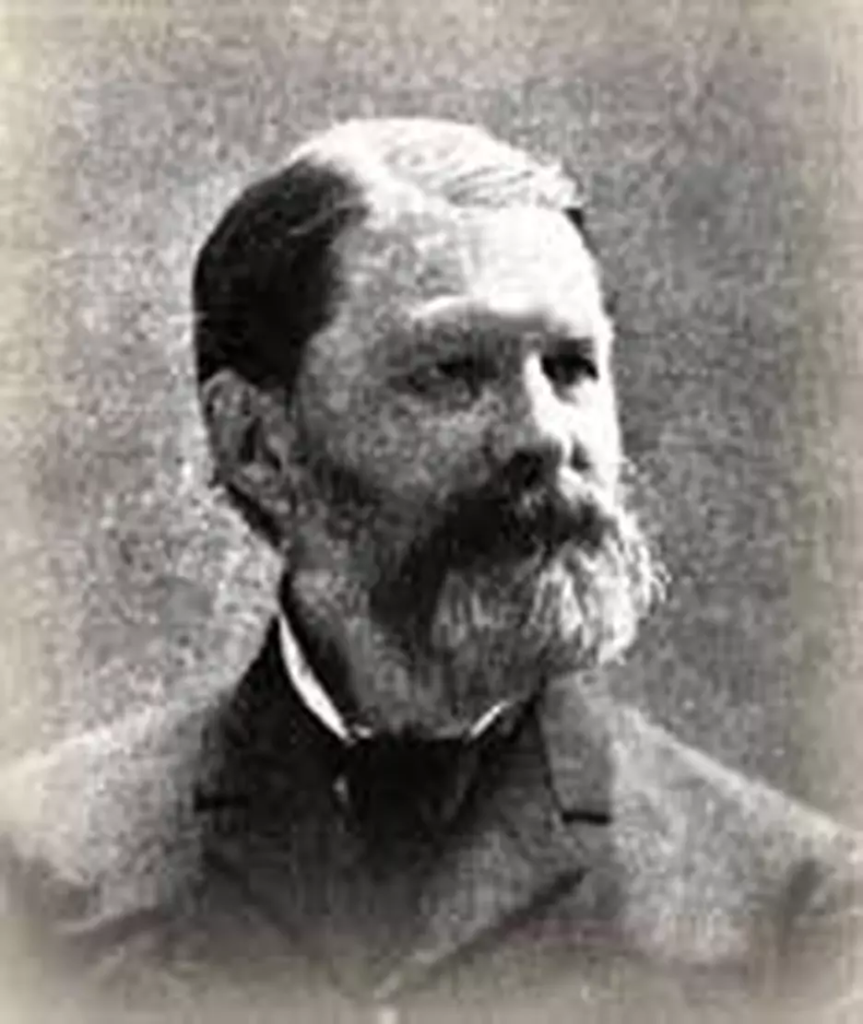
1873
HT: Christian History Institute
During a revival in Newark, New Jersey, Etta Campbell wrote a hymn of warning and appeal for lost souls titled “Jesus of Nazareth Passeth By.” It became a favorite in Great Britain, thanks to Dwight L. Moody’s songleader Ira Sankey who sang it there. The evangelistic team began a series of meetings in Edinburgh, Scotland, on this day, 23 November 1873. Aware that the Scots were prejudiced against any songs apart from the Psalms, Sankey opened the singing with a portion of Psalm 100. For his first solo, however, he sang Etta Campbell’s “Jesus of Nazareth Passeth By.” Intense silence greeted the song, but its words, which now sound stilted, touched many hearts and the Scottish people became more receptive of both organ music and gospel songs.

Ira Sankey with another songwriter, blind Fanny Crosby.
“What means this eager, anxious throng,
Which moves with busy haste along—
These wondrous gatherings day by day?
What means this strange commotion pray?
In accents hushed the throng reply:
‘Jesus of Nazareth passeth by.’
“Who is this Jesus? Why should he
The city move so mightily?
A passing stranger, has he skill
To move the multitude at will?
Again the stirring notes reply:
‘Jesus of Nazareth passeth by.’
“Ho! all ye heavy-laden, come:
Here’s pardon, comfort, rest, and home.
Ye wanderers from a Father’s face,
Return, accept his proffered grace.
Ye tempted ones, there’s refuge nigh:
‘Jesus of Nazareth passeth by.’
“But if you still this call refuse,
And all his wondrous love abuse,
Soon will he sadly from you turn,
Your bitter prayer for pardon spurn.
‘Too late! too late! will be the cry—
Jesus of Nazareth has passed by.’”
1899
“Music, with me has been a side issue,” confessed Robert Lowry. “. . . I would rather preach a gospel sermon to an appreciative audience than write a hymn. I have always looked upon myself as a preacher and felt a sort of depreciation when I began to be known more as a composer.”

Whatever his feelings, when Robert Lowry died on this day, November 23, 1899, in Plainfield, New Jersey, it was as a hymnwriter that he was best known; and that is how he is still remembered. A Baptist minister, he wrote the words and music for “Shall We Gather at the River,” “Christ Arose,” and “Nothing but the Blood of Jesus.” In addition to those popular hymns, he wrote the music for several others that are loved by the church. Three of the best known are “All the Way My Savior Leads Me,” “We’re Marching to Zion,” and “I Need Thee Every Hour.”
Robert was born in Philadelphia in 1826. Seventeen years later, he became a Baptist. Soon afterward he entered the University of Lewisburg (now Bucknell) with the intention of becoming a pastor. After graduation, he took a church in West Chester. Over the next 45 years, he pastored five churches in Pennsylvania, New York and New Jersey. From 1869 on, he pastored while teaching at his alma mater and then serving as its chancellor.
The stories behind several of Robert’s hymns are intriguing. For example, “Shall We Gather” was written on a day late in the Civil War while he lay prostrate from heat. As he drowsed, his mind flew to the passage from Revelation that describes the river flowing from the throne of God. “I began to wonder why the hymnwriters had said so much about the ‘river of death’ and so little about the ‘pure water of life, clear as crystal, proceeding out of the throne of God and the Lamb.’
“Shall we be among the privileged number who stand before the throne singing the praises of the Savior?” he asked himself. Then he answered his own question, “Yes, we’ll gather!” That became the foundation of the song. Invigorated with the thought, he got up and composed the tune at his pump organ.
“Christ Arose” came to his mind as he was enjoying his devotions one evening. He was impressed by the words of the angel at Christ’s empty tomb, who said to the frightened women, “He is not here, but is risen!” The tune he composed moves from the somber verse to the joyful chorus.
Up from the grave He arose,
With a mighty triumph o’er His foes,
He arose a Victor from the dark domain,
And He lives forever, with His saints to reign.
He arose! He arose!
Hallelujah! Christ arose!
Whether he liked it or not, Robert’s songs, not his sermons, made him famous. At a Sunday school Centennial in England, the chairman said, “I am told that Dr. Lowry, the author of ‘Shall We Gather at the River’ is present; we should be glad to hear from him.” The moment Robert reached the platform the crowd erupted into uncontrollable applause.
